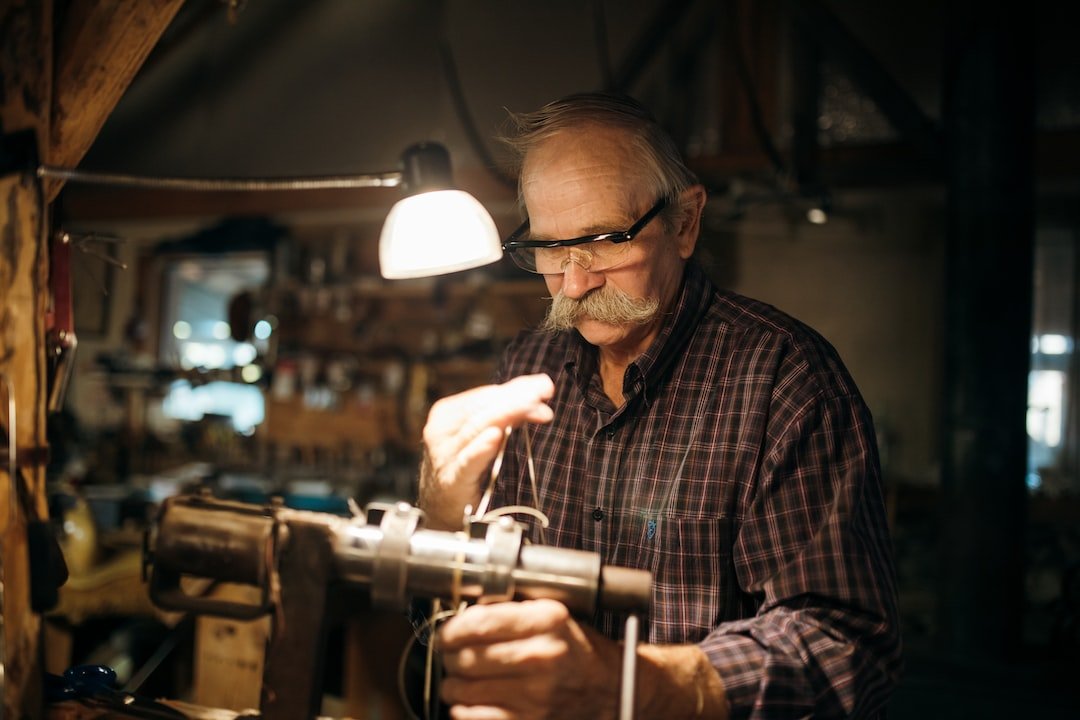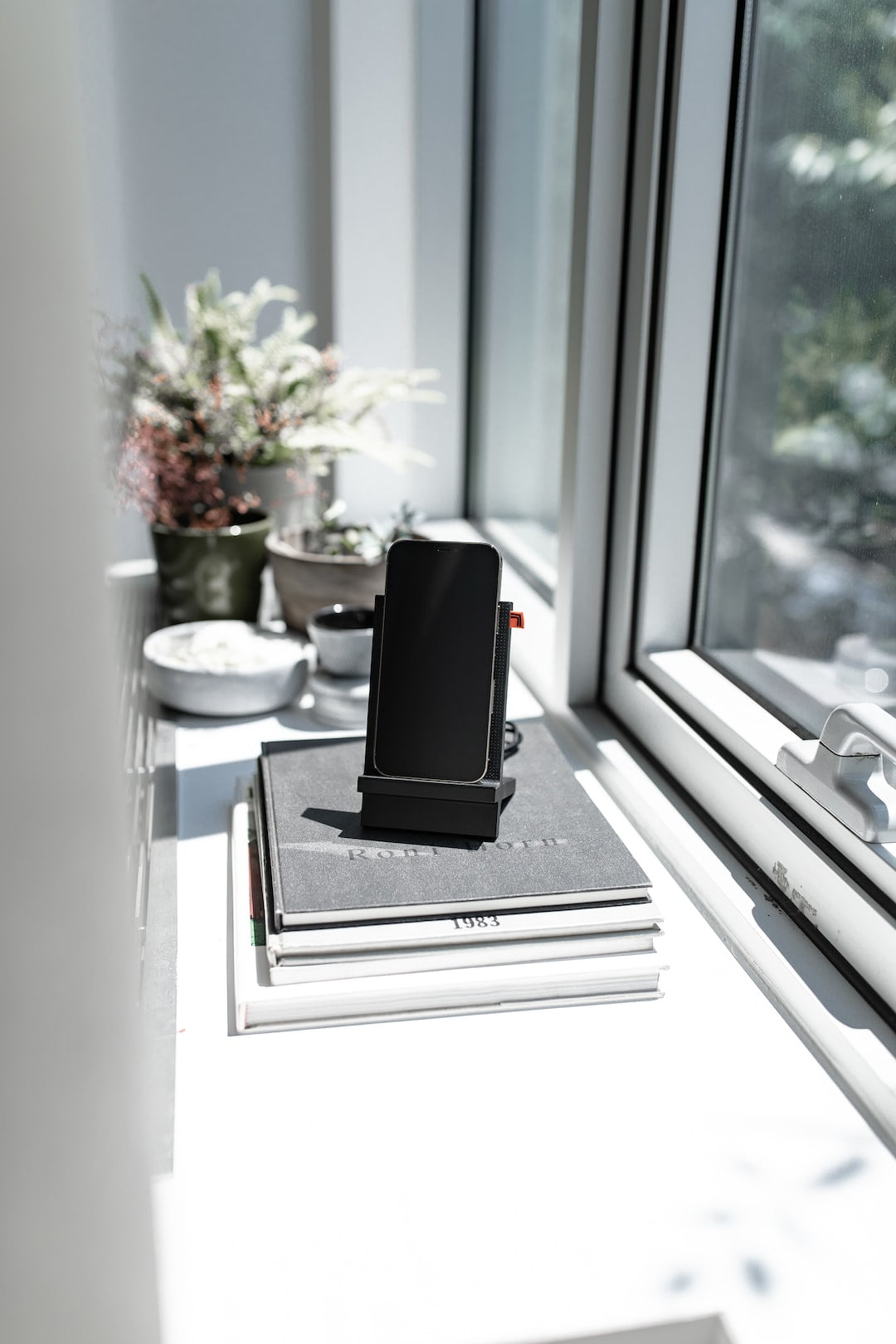Are you interested in becoming a UX designer? If so, then this guide is for you! This guide will introduce you to the 5 steps necessary to becoming a UX designer.The first step is to develop your skillset. To become a UX designer, you need to have strong skills in communication, user research, and visual design. You can develop these skills through taking classes, attending workshops, or working on personal projects.The second step is to build your portfolio. Your portfolio should showcase your skills and highlight your experience working with users. Potential employers will want to see that you have a strong understanding of how users interact with technology.The third step is to find a job or internship that will give you the opportunity to put your skills into practice. internships are often unpaid positions, but they can give you the valuable experience needed to land a job as aUX designer. fourth Once hired as The next step is continuing education; stay up-to-date with new trends and technologies by taking courses and attending conferences related to UX design. By keeping your skill set current, you’ll be able position yourself as an expert in the field and be more likely to get promoted or receive raises throughoutyour career.The fifth and final step is to never stop learning. The field of UX design is constantly changing, so it’s important to keep your skills and knowledge up-to-date. One way to do this is by reading articles, blog posts, and books on UX design. You can also Network with other designers, attend meetups, or participate in online forums to stay current on the latest trends.
A user experience (UX) designer is a professional in the field of user experience and interaction design. As a UX designer, you will be responsible for developing and improving the overall experience of users as they interact with a company or product. This includes everything from the look and feel of a website to how easy it is to use a mobile app. In your role as a UX designer, you will work closely with other members of the product development team, such as web developers, graphic designers, and content creators, to ensure that all aspects of the user experience are well-designed and seamless. You will also be responsible for conducting user research, testing prototypes, and gathering feedback to help inform your designs. The job market for UX designers is expected to grow significantly in the coming years; according to one study by Forrester Research, it is estimated that there will be 2.4 million new jobs in User Experience Design by 2020! If you're interested in pursuing a career in this exciting field, here are some steps you can take: 1) Get educated: While there are many ways to become a UX designer without formal education, most employers prefer candidates who have at least an undergraduate degree in human factors, psychology, interaction design, or a related field. 2) Develop your skills: In addition to formal education, you'll need to develop a strong portfolio of work that demonstrates your UX design skills. This can be accomplished through internships, personal projects, or participating in online communities and forums. 3) Get involved in the UX community: There are many ways to get involved in the UX community, such as attending meetups and conferences or joining an online group or forum. This is a great way to network with other designers and learn about new trends and advancements in the field.


A UX designer is a user experience expert who designs and creates digital products that are both useful and easy to use. They work with developers and product managers to ensure that the final product meets the needs of the users.Becoming a UX designer requires both formal education and real-world experience. Most designers have a bachelor's degree in computer science or a related field, but it is also possible to learn on the job. Many designers start out as web developers or graphic designers before transitioning into UX design.The best way to learn UX design is through practice. There are many online courses and bootcamps that can teach you the basics, but nothing can replace hands-on experience. The best way to get started is by working on personal projects or contributing to open source projects. Once you have some experience under your belt, you can start applying for jobs at companies that need UX designers.
If you're at all interested in a career in UX design, finding a mentor in the field is an essential step. A mentor can help guide your early steps in the field, provide advice and support as you gain experience, and open up opportunities that might otherwise be unavailable.There are many ways to find a mentor. One of the best is simply to reach out to people you admire and respect in the field and ask if they're willing to meet with you on a regular basis. Many designers are happy to share their expertise with someone who is eager to learn. You can also look for mentors through professional organizations or programs dedicated to mentorship (such as Bridge).Once you've found a mentor, it's important to nurture that relationship by being prepared for meetings, being respectful of your mentor's time, and following through on commitments. A good mentoring relationship can be hugely beneficial for both parties involved, so make sure to invest the effort required to make it thrive.
Joining a professional organization for UX designers is a great way to stay up-to-date on the latest industry trends, find mentors and networking opportunities, and improve your skills. There are many different organizations to choose from, so do some research to find one that aligns with your goals and interests. For example, if you’re interested in staying abreast of the latest UX research, consider joining the User Experience Network (UXnet). If you want to get more involved in advocacy and policy issues affecting the UX profession, join the International Organization for Standardization’s Technical Committee 204 on Ergonomics of Human-System Interaction. Local meetups and online communities can also be helpful resources for finding mentorship and networking opportunities.

UX designers are in high demand as companies seek to improve the user experience of their products. Many UX designers start their careers in other fields, such as web design or graphic design. However, with the right skills and portfolio, it is possible to transition into a career in UX design.There are many ways to learn about UX design and build the necessary skills. One important way is to attend relevant conferences and networking events. Conference presentations can provide invaluable insights into the latest trends in UX design. Networking with other professionals can also help you learn about new job opportunities and get your foot in the door of a company you’re interested in working for.
A career in UX design is a great choice for those interested in technology, business, and psychology. It’s a field that is growing rapidly, with many job opportunities available. To get started in this field, it’s best to land an entry-level job. This will give you the chance to learn about the various aspects of UX design and gain experience working with clients. Once you have a few years of experience under your belt, you can start applying for senior-level positions or even open your own consultancy. The sky is the limit when it comes to a career in UX design!
As a UX designer, you will be responsible for creating and improving user experiences for websites and apps. However, your career path may not always be linear, and you may find yourself needing to gain more experience in order to progress. One way to do this is by taking on side projects. These can be anything from working on a personal website to freelancing for a small business. Not only will this give you the chance to improve your skills, but it will also help you build up a portfolio of work that potential employers can see.

When it comes to starting a career in UX design, one excellent way to get your foot in the door is to volunteer your services to local businesses or organizations. Not only will this give you the opportunity to learn about the field and gain some real-world experience, but it also shows potential employers that you are dedicated and passionate about UX design.There are a few different ways you can go about finding volunteer opportunities. One is to reach out directly to businesses or organizations that you’re interested in working with and see if they have any needs for volunteers. Another option is to search for online postings or listings for UX design volunteer opportunities.Whichever route you decide to take, be sure to do your research ahead of time so that you know what kind of commitment (in terms of time and effort) is required before getting started. Additionally, make sure that the organization or business you’re volunteering for is reputable and has a good reputation in the UX community; otherwise, your efforts may not be well received.
A career in UX design can be extremely rewarding, both financially and emotionally. The average salary for a UX designer is over $80,000 per year, and the job satisfaction rate is high. In order to qualify for a UX design position, you need to have a bachelor's degree in design or a related field. You also need to be proficient in at least one design software program and have strong communication skills. Writing a great resume and portfolio are also critical to getting hired as a UX designer. If you're interested in becoming a certified UX designer, there are many different ways to do so. There are plenty of online courses that can teach you the basics of UX design principles and techniques. In addition, many colleges and universities offer certification programs in this field. Finally, there are professional organizations such as the User Experience Alliance (UXPA) that offer certification examinations. Whichever route you choose, make sure that you're getting certified by an accredited organization so that your credentials will be recognized by potential employers.
As a UX designer, it is important to stay up to date on the latest trends in the field. This can be done by attending conferences, taking courses, and reading articles and books on the subject. By staying up to date, you will be able to design better user experiences and products. In addition, you will be able to keep up with the competition and position yourself as an expert in the field.

As a UX designer, it's important to stay up-to-date on the latest trends and developments in your field. One way to do this is to read industry-related blog posts and articles. This will help you gain new insights and perspectives that you can apply to your work. Additionally, reading can also help you develop a better understanding of the UX design process and how to approach different challenges. If you're not sure where to start, there are many great UX design blogs out there that cover a wide range of topics. Find one or two that you enjoy reading and make a habit of checking them regularly for new content.
As a UX designer, you will be responsible for creating intuitive and user-friendly designs for websites and apps. Your job will be to think about how users interact with digital products and to design interfaces that are easy to use. In order to succeed in this career, it is important that you stay up-to-date with the latest trends in UX design. One way to do this is by following UX designers on social media.There are a number of different social media platforms that offer insights into the world of UX design. Twitter is a great place to start, as there are many influential UX designers who share their thoughts and ideas on the platform. You can also find helpful articles and tutorials on sites like Medium and Dribbble. In addition to following individual designers, it can also be helpful to follow organisations such as A List Apart and The Nielsen Norman Group, which offer news, opinion pieces, and resources forUX professionals.By following UX designers on social media, you will not only keep up with the latest trends, but you will also get inspiration for your own work. Seeing how other designers approach problems can give you new ideas for tackling challenges in your own projects. Additionally, followingUX professionals on social media isa great way to build your network and to find out about job opportunities.
A career in UX design is a great choice for people who are interested in technology and want to help create products that are user-friendly and enjoyable to use. The job market for UX designers is expected to grow by 22% over the next decade, so now is a great time to start a career in this field.To become a UX designer, you will need at least a bachelor’s degree in computer science or a related field. However, many employers prefer candidates with master’s degrees or even PhDs. In addition to your educational background, it is also important to have strong communication and problem-solving skills, as well as experience with various design software programs.If you’re not sure where to start your search for a job in UX design, there are several online job boards that list openings in this field, such as Indeed and Monster. You can also check out websites of companies that interest you and see if they have any open positions listed on their careers page. Once you find a few potential jobs that look like a good fit, be sure to read through the requirements carefully and make sure you meet all of the qualifications before applying.

As a UX designer, you should be open to relocating for the right job opportunity. There are many different companies all over the world that are looking for talented UX designers. If you're willing to relocate, you'll have a much better chance of finding the perfect job for your skillset. Keep your options open and don't rule out any potential employers just because they're not in your current city.
You’ve always been creative and good with your hands. You’re also pretty tech savvy and have always enjoyed using computers and software. When you learned about the field of user experience design, it sounded like the perfect career for you. You enrolled in a UX design program and have been working hard to become a great UX designer.But now, after a few years in the field, you’re starting to feel burnt out. The constant deadlines and pressure to create perfect designs is taking its toll on you. You’re thinking about giving up on your dream of becoming a UX designer and finding another job that will be less stressfu.Don't give up! You are so close to achieving your goal of becoming a great UX designer. The skills and knowledge you have acquired will help you succeed in any career you choose. Keep pushing forward and don't let anything stop you from achieving your dreams.
Becoming a UX designer is a process that takes time, effort, and practice. However, following these five steps will give you the foundation you need to start your career in this field. With dedication and hard work, you can become a successful UX designer and make a positive impact on the world around you.